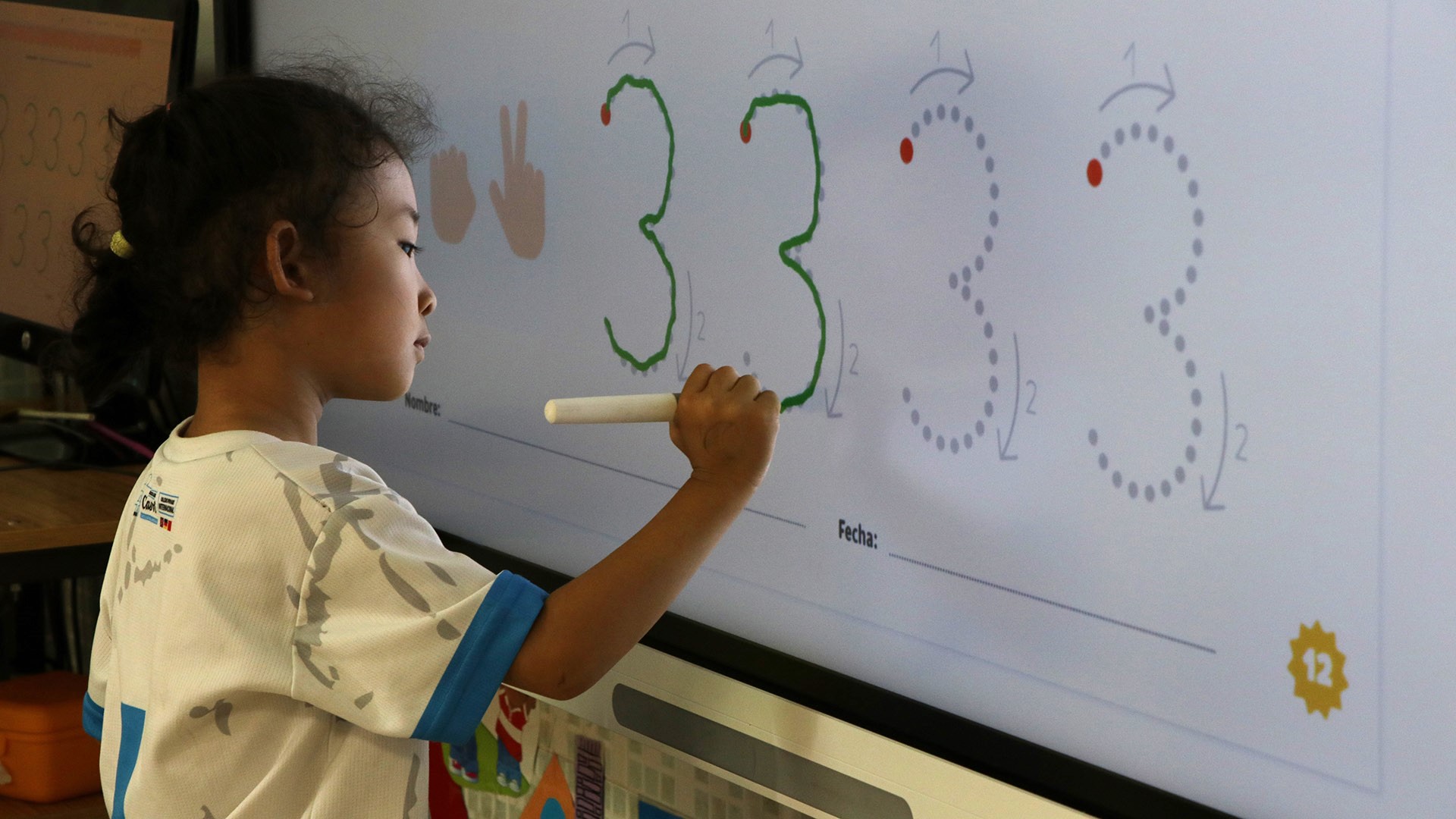Learning mathematics has been a challenge for many students throughout history. It is often perceived as a difficult and boring subject. However, it is essential for intellectual development and problem solving in everyday life. The key to tackling this problem is to study fun mathematics from an early age. In this article, we will explore why this is important, how to do it and the benefits of this methodology.
THE PAIN OF STUDYING MATHEMATICS IN THE TRADITIONAL WAY
THE PERCEPTION OF MATHEMATICS AS A BORING SUBJECT
One of the most significant pain points in learning mathematics is the perception that it is a boring subject. Students often find it difficult to sustain their interest, resulting in poor learning.
FEAR OF MATHEMATICS
Fear of mathematics is another common obstacle. Many students develop anxiety or aversion to the work involved in learning mathematics because of its perceived difficulty.
DIFFICULTIES IN FUNDAMENTAL CONCEPTS
Another pain point is the struggle students face in understanding fundamental mathematical concepts. This can lead to gaps in their understanding and continued difficulties at later levels.
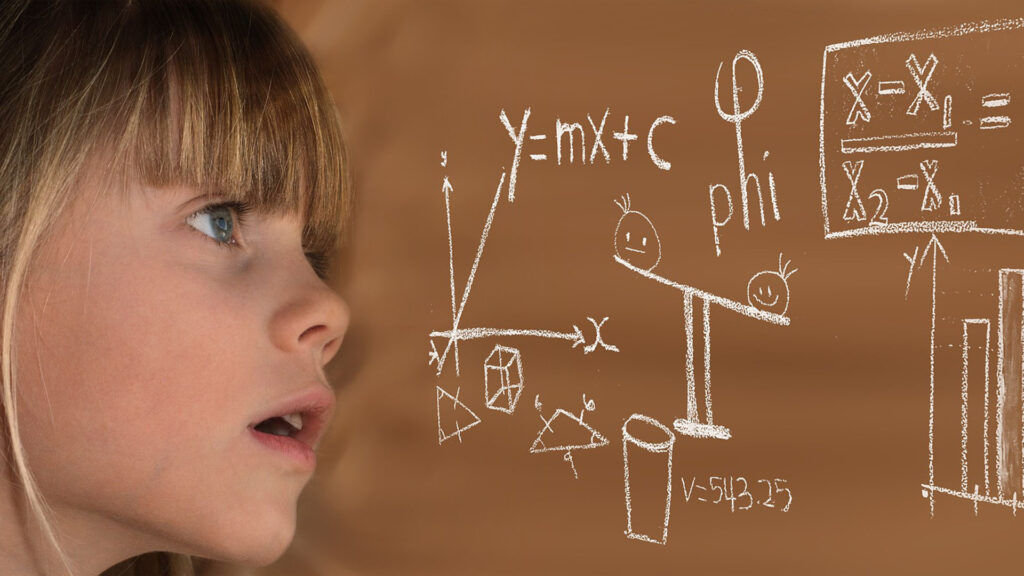
PROBLEMS OF SEEING MATHEMATICS AS DIFFICULT AND BORING

The widespread perception that mathematics is a difficult and boring subject has led to a number of problems affecting both students and society as a whole. Problems that trigger the need to study fun mathematics from an early age. Some of these problems include:
LOW STUDENT ACHIEVEMENT
Perceived difficulty in mathematics leads to underachievement in this subject. Students may feel demotivated to study and, as a result, get lower grades in mathematics.
SCHOOL FAILURE
An aversion to mathematics often translates into higher rates of school failure. Students who cannot overcome mathematical difficulties may drop out of school or be retained in earlier grades.
MATHEMATICAL ANXIETY
It is common and can be debilitating. Students who are fearful or anxious when faced with mathematical problems have difficulty learning and performing in this subject.
LACK OF FUNDAMENTAL SKILLS
The perception of mathematics as boring can lead to a lack of understanding of fundamental mathematical concepts. This creates gaps in knowledge that negatively affect students as they progress through their education.
LESS INTEREST IN STEM CAREERS
Students who find mathematics challenging and boring may lose interest in STEM (science, technology, engineering and mathematics) related careers. This may limit their career opportunities in an increasingly technology-driven world.
IMPACT ON SELF-ESTEEM
The belief that they are not ‘good’ at mathematics can erode pupils’ self-confidence. Also, their ability to address academic challenges.
CHALLENGES IN EVERYDAY LIFE
Lack of competence in mathematics can make it difficult to solve problems in everyday situations. This is the case for financial management, decision-making and understanding statistical data.
INTERNATIONAL COMPETITIVENESS
In an increasingly globalised world, a lack of solid mathematical skills can make students less competitive compared to students from other countries.
IMPACT ON SOCIETY
Lack of mathematical skills can have an impact on the economy, innovation and competitiveness. An insufficiently mathematically literate workforce can limit progress in scientific and technological fields.
INEQUALITY IN EDUCATION
Students from disadvantaged socio-economic backgrounds may be more affected by negative perceptions of mathematics. This results in the perpetuation of inequality in education and opportunity.
REVEALING STATISTICS
Las estadísticas revelan la magnitud del problema. According to education reports, a significant percentage of students experience difficulties in mathematics, resulting in worrying rates of school failure. In addition, national and international standardised test results often show poor performance in mathematics.
Studying fun mathematics, therefore, becomes an urgent necessity to reverse these negative trends.
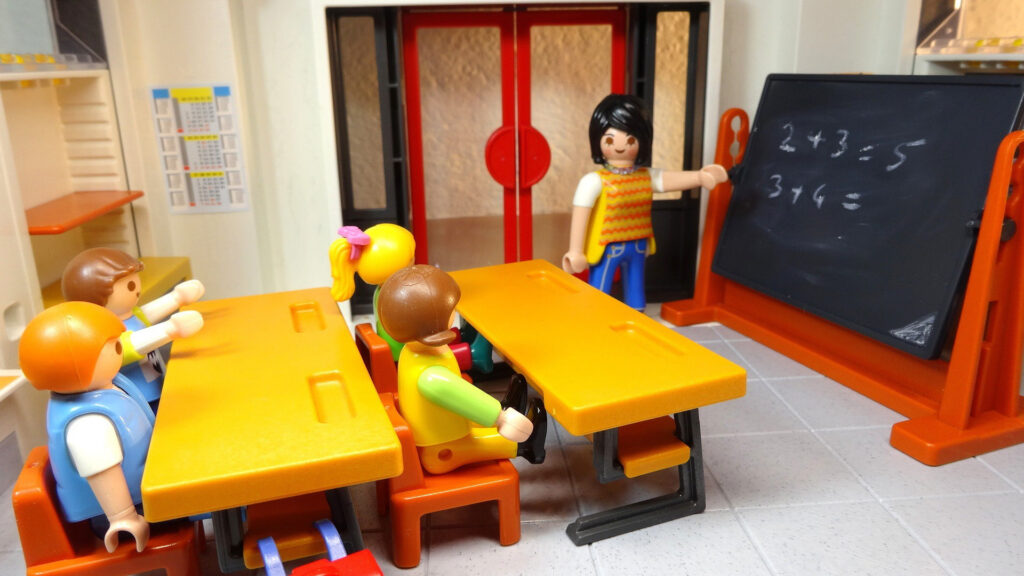
EXPERT OPINIONS
Well-known education experts have shared their concerns about the traditional approach to teaching mathematics. Carol Dweck, psychologist and author of “Mindset: The New Psychology of Success,” has highlighted how a fixed mindset, which often develops in rigid learning environments, can hinder progress in mathematics.
Dweck argues that by promoting a “Study Fun Maths” approach, students can develop a growth mindset, which encourages them to face challenges and persevere in learning mathematics.
SUPPORT FROM EDUCATIONAL ORGANISATIONS
Education organisations worldwide have advocated for a change in the way mathematics is taught. UNESCO has pointed out that mathematics learning strategies must be engaging and relevant from an early age to ensure long-term educational success. This perspective supports the importance of “Studying fun mathematics”, as a strategy to make mathematics more accessible and engaging.
GOVERNMENT PERSPECTIVE
Governments have also taken steps to address the need for fun mathematics. In many countries, curriculum reforms have been implemented to incorporate more participatory and playful teaching methods.
WHY IT IS IMPORTANT TO STUDY FUN MATHEMATICS FROM AN EARLY AGE
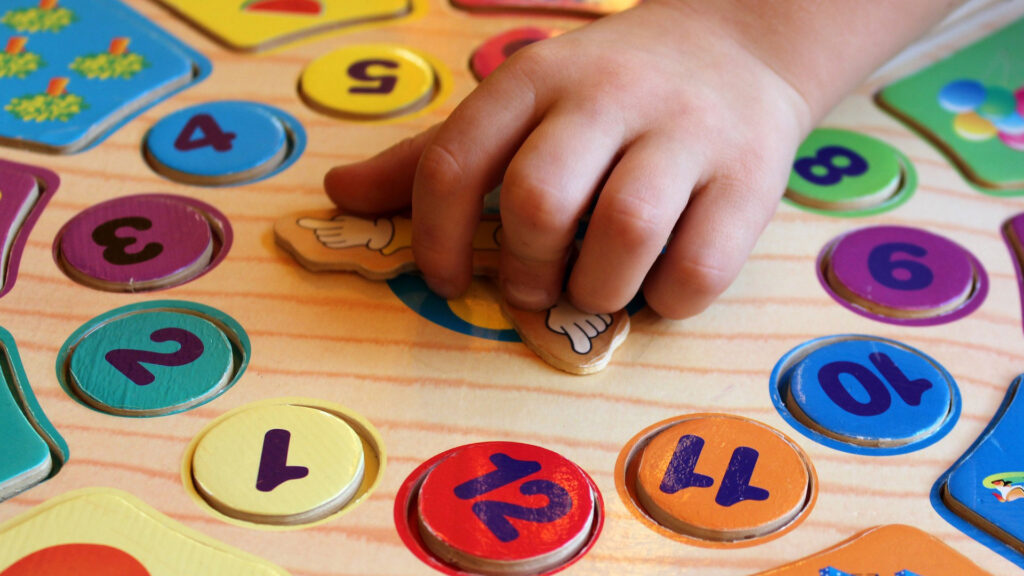
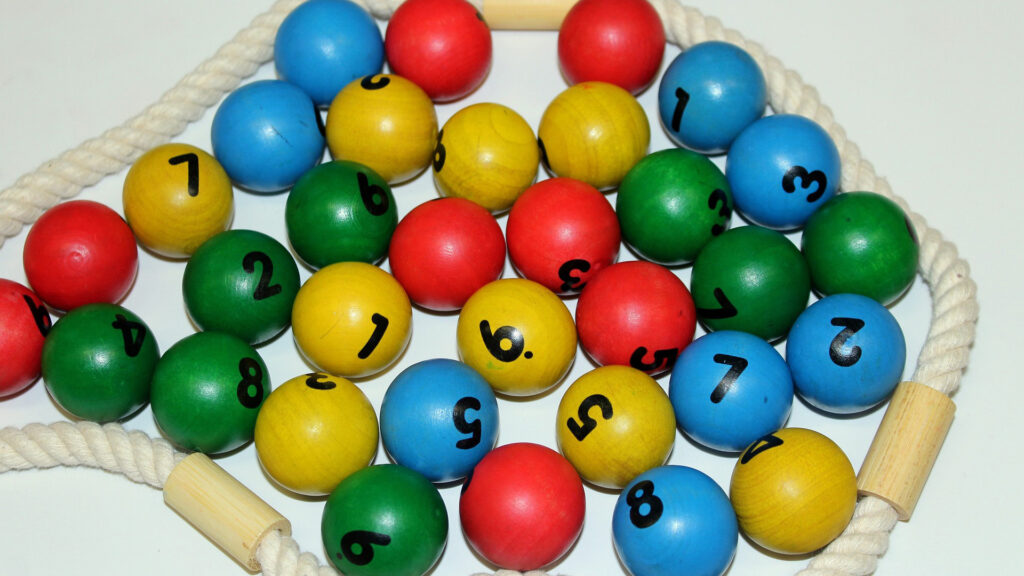
COGNITIVE SKILLS DEVELOPMENT
Mathematics is fundamental to the development of cognitive skills. This is the case for problem solving, logical reasoning and decision making. These skills are essential in everyday life and in the world of work.
PREPARARSE PARA EL FUTURO
We live in a digital age where mathematical skills are increasingly important. Programming, data science and technology in general require a solid mathematical background.
OTHER MATTERS
A solid understanding of mathematics can have a positive impact on other subjects. Mathematical skills often transfer to problem solving in science, economics and more.
FUN LEARNING STRATEGIES
LEARNING MATHEMATICS FROM SCRATCH
Learning mathematics from scratch is essential. This involves a gradual presentation of concepts, ensuring that students are not overwhelmed.
LEARNING THE MULTIPLICATION TABLES BY PLAYING
One of the most effective ways to study maths in a fun way from an early age is through games. Board games, educational applications and outdoor activities. All these activities can make the process fun.
INCORPORATION OF ALGEBRA AND ARITHMETIC
Early introduction of algebra and arithmetic concepts can help students to better understand mathematics as they progress through their education.
PERSONALISED EDUCATION
Personalised education, which is tailored to the needs of individual students, is a key strategy for making mathematics more accessible and engaging.
HOW TO GET OUR CHILDREN TO STUDY FUN MATHS FROM AN EARLY AGE
Estudiar en el extranjero es una opción ideal para los alumnos que han estudiado según metodologías internacionales como el Bachillerato Internacional After completing programmes such as the PYP, MYP, and DP, students continue their pursuit of international education. Por eso este tipo de iniciativas son de gran ayuda para los estudiantes de hoy.
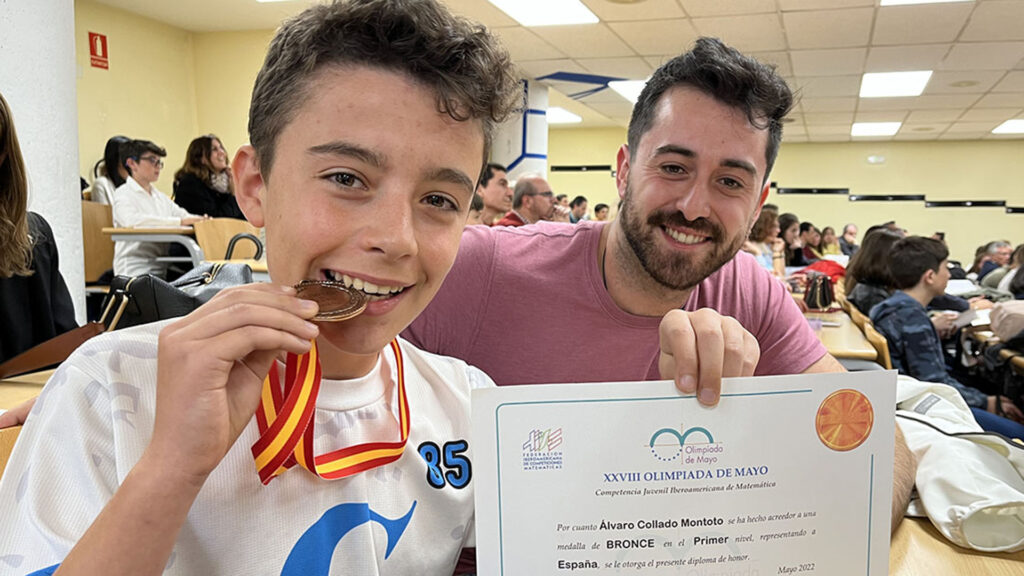
FOSTERING CURIOSITY
Parents and educators can encourage children’s curiosity about mathematics by showing them how mathematics is present in everyday life.
USING FUN LEARNING STRATEGIES
There are a wide variety of educational resources, such as games, apps and books, that make mathematics engaging and accessible.
SUPPORT FROM QUALIFIED TEACHERS
Teachers play a crucial role in making mathematics fun and understandable. Training teachers in effective teaching methods is essential.
BENEFITS OF STUDYING FUN MATHS
DEVELOPMENT OF PROBLEM-SOLVING SKILLS
The playful approach to mathematics helps children develop problem-solving skills, which benefits them throughout their lives.
GREATER CONFIDENCE
When children enjoy mathematics, they gain confidence in their mathematical skills and are more motivated to learn.
PREPARATION FOR FUTURE CAREERS
Mastery of mathematics from an early age prepares students for careers in STEM fields. In them, the demand for mathematical skills is high.
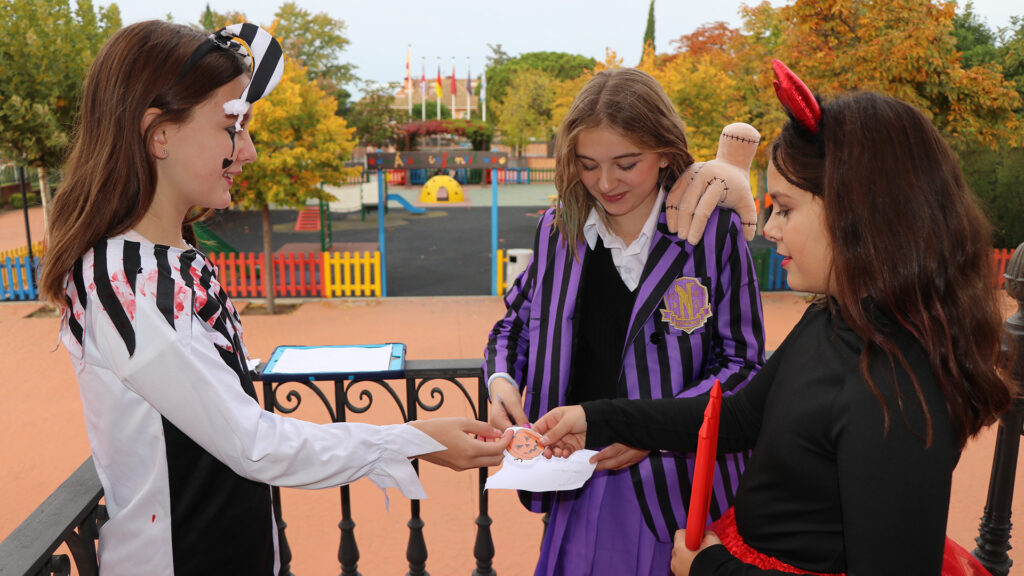
INTERNATIONAL PUBLIC SCHOOL EUROCOLEGIO CASVI: AN EXAMPLE OF A FUN APPROACH TO MATHEMATICS TEACHING
Eurocolegio Casvi International Private School, located in the Madrid town of Villaviciosa de Odón, is an outstanding example of how mathematics can be studied in a fun way from an early age.
The key is the use of the International Baccalaureate methodology. This provides a high quality education that encourages curiosity and interactive learning.
Also, that they have always been the first to introduce new educational methods and tools that favour the acquisition of knowledge by our students.
FUN MATHEMATICS FROM THE EARLY YEARS OF KINDERGARTEN
An innovative project to successfully learn mathematics is available from the first cycle of Infant Education. A very creative educational project that facilitates their neurological development, and which emphasises manipulation, observation and experimentation in a playful way. This is achieved through bits and pieces and mathematical games of all kinds.
Thanks to this educational project in Casvi Villaviciosa, pupils lose their fear of making mistakes. They become more participative and enjoy this process of learning mathematics, which is adapted to their level of maturity.
In this way, they acquire learning strategies which will make it easier for them to solve everyday problems. Research, communication, critical and creative thinking skills. Demonstrating that they are, at all times, reflective, and achieving points of improvement that will help them to develop as people.
STUDYING FUN MATHEMATICS SUCCESSFULLY WITHIN THE INTERNATIONAL BACCALAUREATE
Studying mathematics for fun and success is closely related to the way we work in the International Baccalaureate. This school has a continuum of IB programmes. In other words, they are accredited to offer all three programmes. PEP (in pre-primary and primary education), PAI (in ESO) and Diploma Programme (in the Bachillerato stage).
All of them involve a constructivist working methodology based on the search for knowledge. These are achieved through enquiry, exploration and research, which allows learning to have no limits. This encourages challenge and self-improvement. In addition, many of these mathematical concepts are worked on in a transdisciplinary way in the different units of enquiry that are developed at all educational stages.
STUDY FUN MATHS IN ENGLISH
The transdisciplinary nature of learning at Casvi Villaviciosa, thanks to the International Baccalaureate methodology, means that learning mathematics successfully also takes place within the subject of English.
Within this Casvi Educational Project, in order to acquire the spontaneity of the foreign language, what better than to participate in two educational contents. In the vocabulary and concepts we are learning in the Spanish language. And among them, of course, are mathematicians.
WHY DOES CASVI VILLAVICIOSA WORK ON THIS SUBJECT FROM AN EARLY AGE?
- Because this is the way to successfully learn mathematics.
- Moreover, because mathematics is present all around us.
- Because in everything around us, there are numbers, measurements, patterns and codes that we have to decipher.
- And finally, because temporal and spatial orientation are very important concepts, and both are worked on from the world of mathematics.

